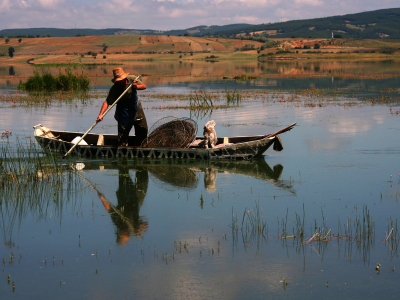
Europe and Central Asia Regional Overview of Food Security and Nutrition 2024
Managing water sustainably for improved food security and nutrition
This report provides the latest updates on hunger, food insecurity and malnutrition in Europe and Central Asia, including the cost and affordability of healthy diets. It also explores the central theme of water security, highlighting its critical connections to agriculture, food security and nutrition. While the region has made progress in reducing hunger and food insecurity (SDG Target 2.1), challenges remain in eliminating all forms of malnutrition (SDG Target 2.2).
Collections
- Country gender assessment series
- Digital agriculture
- Disaster risk reduction and management publication series
- Empowering smallholders and family farms series
- Transboundary animal diseases - Leaflets
Multimedia resources
Publications
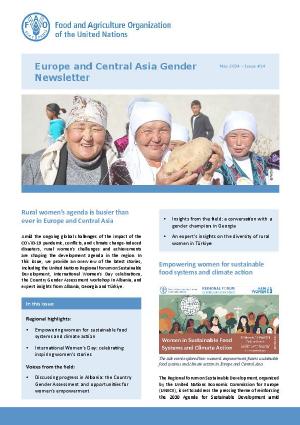
Europe and Central Asia gender newsletter, May 2024 – Issue #14
05/2024
In this issue of the FAO Europe and Central Asia Gender Newsletter, we provide an overview of the latest stories, including the United Nations Regional Forum on Sustainable Development, International Women’s Day celebrations, the Country Gender Assessment workshop in Albania, and expert insights from Albania, Georgia and Türkiye.
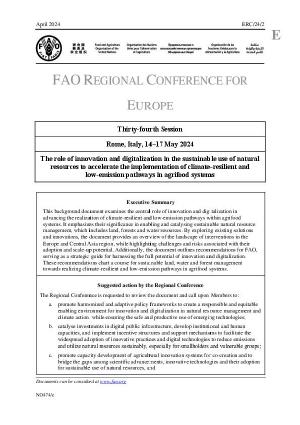
The role of innovation and digitalization in the sustainable use of natural resources to accelerate the implementation of climate-resilient and low-emission pathways in agrifood systems - ERC 24/2
05/2024
This background document examines the central role of innovation and digitalization in advancing the realization of climate-resilient and low-emission pathways within agrifood systems. It emphasizes their significance in enabling and catalysing sustainable natural resource management, it outlines recommendations for FAO, serving as a strategic guide for harnessing the full potential of innovation and digitalization.
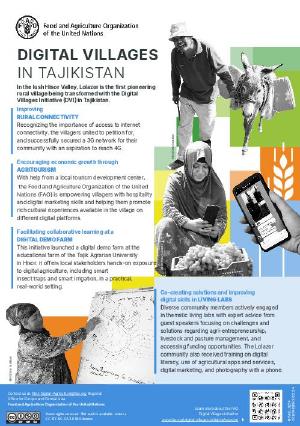
Digital Villages in Tajikistan
05/2024
The flyer details the activities that are ongoing as part of the digital Villages initiative in Tajikistan. Digital Villages enhance rural resilience and food security by providing farmers with digital tools for accessing inputs, market information, and alternative sales channels online.
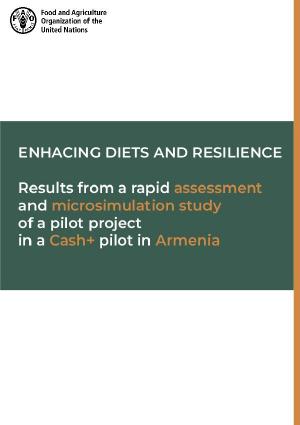
Enhancing diets and resilience
04/2024
This report presents the results of a mixed-method rapid assessment that provides both indicative quantitative information and in-depth qualitative analysis on the household-level impacts of the Cash+ pilot. The aim of this study is to evaluate the impacts of the pilot on beneficiaries, in particular on their diets, agricultural activities, income generation and poverty reduction and its potential for poverty reduction through a scale up of similar support.
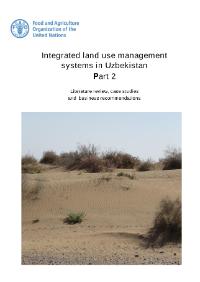
Integrated land use management systems in Uzbekistan – Part 2
03/2024
This report aims to describe and analyse the economic and business aspects of agroforestry implementation in Uzbekistan. This information is presented to enable the development of detailed and specific suggestions for land use contract development.
.jpg?sfvrsn=210cc7ff_1)
Europe and Central Asia Gender Newsletter
03/2024
Each issue of FAO Europe and Central Asia Gender Newsletter explores and discusses women’s and men’s experiences in agriculture and food security in the region. This issue reports on the latest developments in gender equality and women's empowerment through the celebration of the International Day of Rural Women in the region, the 43rd session of the European Commission on Agriculture, FAO activities and projects in the Western Balkans and regional workshops organised in Georgia and Türkiye.
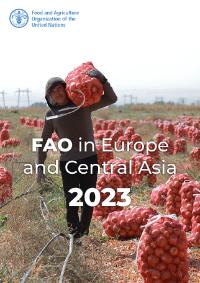
FAO in Europe and Central Asia 2023
03/2024
FAO’s work globally and in the Europe and Central Asia region is guided by the FAO Strategic Framework 2022–2031, which articulates the Organization’s vision of a sustainable and food-secure world for all. With the Strategic Framework and the four betters as a lens, this report reviews and describes the project and the programme work of the Organization at the regional level and in each of the FAO programme countries of the region.
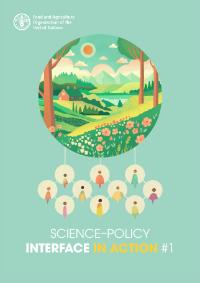
Science–Policy Interface in action #1
03/2024
The brochure delves into the critical interface between science and policy within the agrifood system, emphasizing its role in driving transformation, resilience, and food security. It highlights the importance of Science–Policy Interfaces (SPIs) in translating scientific discoveries into actionable policies and practices.
.jpg?sfvrsn=8c7fecdb_2)
Digital Villages In Europe and Central Asia
01/2024
The Digital Village Initiative aims to transform rural life in Europe and Central Asia by deploying digital technologies. This project focuses on three key objectives: deliver increased agricultural productivity by introducing advanced technologies to farmers; connect rural communities through digital platforms that enhance access to essential services, and foster sustainable and resilient rural economies for long-term growth and prosperity.
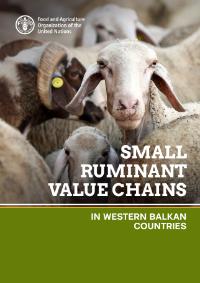
Small ruminant value chains in Western Balkan countries
01/2024
The report delineates four principal market channels for small ruminant milk and three for small ruminant meat that farmers utilize for product commercialization. Albanian small ruminant farmers predominantly focus on milk production, while their counterparts in Serbia, Montenegro, and Bosnia and Herzegovina are inclined towards meat production.
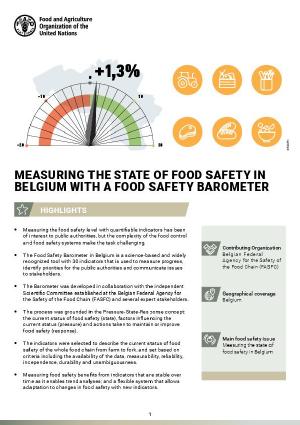
Measuring the state of food safety in Belgium with a food safety barometer
01/2024
This publication document discusses the development and implementation of a food safety barometer in Belgium. The purpose of the barometer is to measure the state of food safety in the country and enable evidence-informed risk management and policy decisions. The barometer consists of 30 indicators that cover various aspects of food safety from farm to fork.
055033316b184760ac1014117ea0254d.jpg?sfvrsn=a62a48e8_2)
Promoting sustainable and circular bioeconomy through agriculture practice in Eastern Europe and Central Asia
12/2023
This report presents an overview of concepts related to bioeconomy and the benefits of their implementation in agriculture and shares agriculture production trends, bioeconomy initiatives and sustainable agriculture approaches from throughout the Eastern Europe and Central Asia region.
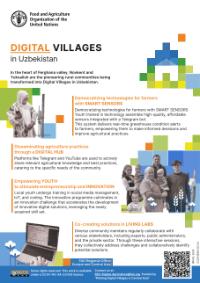
Digital Villages in Uzbekistan
01/2024
In Uzbekistan's Ferghana Valley, the rural communities of Novkent and Yuksalish are at the forefront of a remarkable transformation into Digital Villages. This leaflet explores how these areas are harnessing technology to revolutionize agriculture and empower youth.
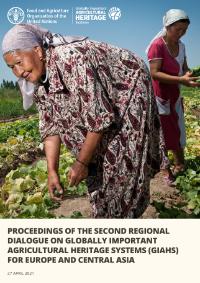
Proceedings of the Second Dialogue on Globally Important Agricultural Heritage Systems for Europe and Central Asia
12/2023
The Second Dialogue on Globally Important Agricultural Heritage Systems (GIAHS) in Europe and Central Asia aimed to promote the GIAHS Programme in the region, raising awareness on the potentiality of participating in the dynamic conservation of these sites. Speakers from all around the region discussed about traditional agricultural systems, bringing the experience of existing sites at different stages of recognition and potential ones that are still in the process of identification.
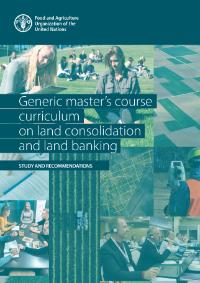
Generic master’s course curriculum on land consolidation and land banking
12/2023
The Generic master’s course curriculum on land consolidation and land banking: FAO Study and Recommendations is a powerful capacity development tool that will educate young land tenure professionals and existing specialists interested in implementing land consolidation and land banking projects. The report contains a structure for a course curriculum on land consolidation and land banking, including a list of modules, recommendations regarding teaching techniques and useful resources.
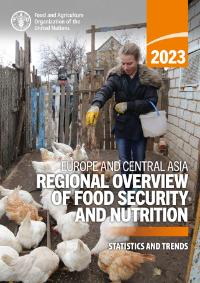
Europe and Central Asia - Regional Overview of Food Security and Nutrition 2023. Statistics and trends
12/2023
The 2023 Regional Overview of Food Security and Nutrition in Europe and Central Asia is the ninth Europe and Central Asia (ECA) report monitoring regional trends and progress made towards reaching Sustainable Development Goal (SDG) 2 food security and nutrition targets. SDG 2, often referred to as the “Zero Hunger” goal, aims to end hunger, achieve food security and improved nutrition, and promote sustainable agriculture.
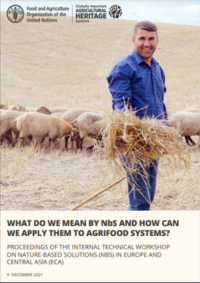
What do we mean by NbS and how can we apply them to agrifood systems?
12/2023
Proceedings of the technical workshop on nature-based solutions in Europe and Central Asia FAO acknowledges that nature-based solutions are cost-effective interventions that can enhance resilience in agriculture and food production while mitigating climate change and enhancing the environment. These strategies mimic nature by integrating the ecosystem functioning at a landscape scale to address socio-environmental challenges such as water scarcity, food insecurity and climate change adaptation
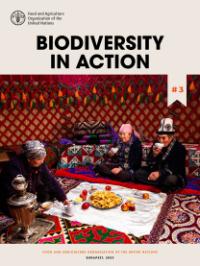
Biodiversity in Action — #3
11/2023
The third issue of Biodiversity in Action illustrates why the health of humans and the environment requires biodiversity and how all dimensions of food security depend on it, highlighting the risks for nutrition and health and the benefits for food and nutritional security.
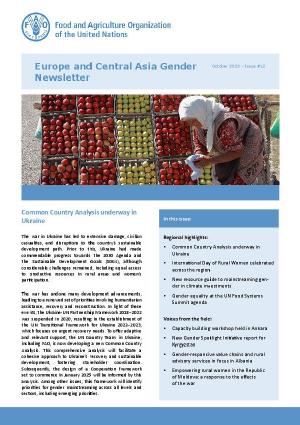
Europe and Central Asia Gender Newsletter, October 2023 – Issue #12
10/2023
This issue of the FAO Europe and Central Asia Gender Newsletter reports on the updates regarding the gendered impacts of the war in Ukraine and gender-responsive earthquake recovery in Türkiye, International Day of Rural Women celebrations in the region, FAO's new resource guide to mainstreaming gender in climate investments, and the UN Food Systems Summit proceedings. The newsletter also includes insightful field stories from Türkiye, Kyrgyzstan, Albania and the Republic of Moldova.
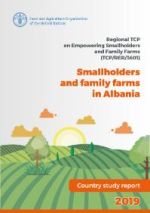
Smallholders and family farms in Albania - Country study report 2019
06/2020
Small and very small farms are up to 2 ha in size, and large farms are those larger than 2 ha. Very large farms are 10 ha or more. Women represent 50 percent of those working in agriculture, but head around 6.5 percent of all farms. Agriculture production is completely dominated by smallholders and family farms, and women and men face different realities and needs. 2020, 164 p.
